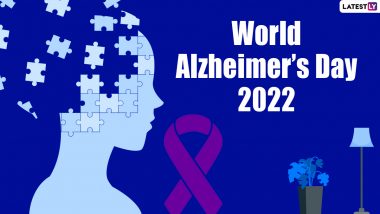“Health is wealth,” a prophecy well known for physical health, has now been accepted for continuously deteriorating mental health. Being aware of what goes on inside the body has implications for both physiological and psychological health.
Health has been given importance since the beginning of time. Survival of the fittest has never derailed people from taking their health seriously. In recent times, where professional or personal overload easily produces stress, leading to other mental health issues, people are mindful of everything in their surroundings. Temporary bliss can be dangerous as distractions do not eradicate the severity of prevalent and persistent mental health issues.

Seeking professional intervention either in health or in the workplace is always a supportive concept. The fact that help is within reach and should be asked for without any hesitation is the need of the hour.
Despite advancements in science and technology, diseases and disorders that can be cared for, treated completely, and handled properly (if incurable) are frowned upon if they are not physiological or pathological. It is high time everyone accepted the danger of ignoring and neglecting mental diseases and disorders equally.
The WHO has prioritized certain days of the year to help people be aware of many mental illnesses and the interventions available for them in order to provide sustenance to the depraved mental health. One such day is World Alzheimer’s Day, which is annually observed around the globe on September 21st.
What is Alzheimer’s?
Alzheimer’s is a brain disorder that is mainly associated with the loss of memory, speech skills, and other functional abilities.
Alzheimer’s is the most common type of dementia. Dementia is the forgetfulness and inability to remember, think, or make decisions that hinder day-to-day activities. There is a significant derailment of healthy daily life.

It develops progressively with a minimal level of memory loss and possible loss of interacting abilities. Diagnosed AD is mostly found in people of age 60 and above, but the symptoms can occur at younger ages as well.
Symptoms of Alzheimer’s disease (AD)
- Memory loss
- Inability to hold a conversation.
- Difficulty in performing familiar tasks at familiar places (home, work, and other well-known places)
- Loss of thinking ability
- The decline in good judgment.
- Difficulty in retracing steps to recall anything.
- Mood swings caused by the above inabilities
- Personality or behavioral changes
Who, When, and Where of Alzheimer’s disease (AD)
This particular brain disorder got its name from Dr. Alois Alzheimer, who was a German psychiatrist. While examining the brain tissues of a dead patient in 1906, who had died of an unusual mental illness with complaints of memory loss, language issues, and unpredictable behavior, he found the neurons in disarray with clumps and entanglements.

These clumps and entanglements were later coined as amyloid plaques and neurofibrillary, respectively. They signify some of the major features of Alzheimer’s.
The dysfunction within the brain’s hippocampus and entorhinal cortex is the primary location of this disease. It later drops further into the cerebral cortex, which disrupts functions associated with language, reasoning, and behavior.
Approaches towards AD
This year’s WHO theme for Alzheimer’s Day is “Know Dementia, Know Alzheimer“. As we have already established the fact that Alzheimer’s is a common type of dementia, awareness about dementia is being made a priority in order to minimize the chances of missed early interventions.

Traditionally, there has been only one approach and that was the pharmacological approach, through specific drugs to inhibit the progressive symptoms of Alzheimer’s.
But with WHO working for awareness and intervention of Alzheimer’s, we have a non-pharmacological approach which includes cognitive therapies like aroma, music, and other non-drug methods.
Recent research has provided strong grounds for non-pharmacological interventions as the foremost step in the treatment of Alzheimer’s. As Alzheimer’s is an incurable disease, it is the awareness of every stage that magnifies the chances of progressive deterioration.
The pharmacological approach to treatment produces the desired results at any stage of Alzheimer’s through repetitive medications. When this is joined by a non-pharmacological approach, the probability of treating this disease at a very young stage and preventing its symptoms from occurring early is significantly reduced.

Clinicians have been advised to provide non-pharmacological (psycho-social) intervention prior to pharmacological. Due to familiarity with the structure of psycho-social intervention, the enigma of mental healthcare professionals like psychiatrists prescribing heavy drugs reduces.
Moreover, performing tasks that are designed for patients with AD with the support of primary caregivers and family members reduces the risk of social impairment at the initial stage of the disease. As per the study conducted by Dr. Edmund Howe in 2008, it is the emphasis on a psycho-social approach that takes the trophy.
It cannot be denied or ignored that medicinal drugs provide significant assistance to those suffering from incurable AD. But counseling and therapy are not just a trend. It is the first step to tackling the distress caused by any chronic illness.
The Takeaway of the Year
This year the emphasis is on raising awareness about dementia, of which Alzheimer’s is a common type. There is no better intervention than awareness. With proper and detailed information on what qualifies as dementia, different levels of Alzheimer’s can also be determined. This can easily lead to prompt professional healthcare intervention, preventing the patient’s mental abilities from rapidly deteriorating.

Knowledge, information, and consistent awareness are the first steps towards intervention on behalf of AD patients. We need this and the world needs this.
Read More: Mental Health in Chronic Illness













